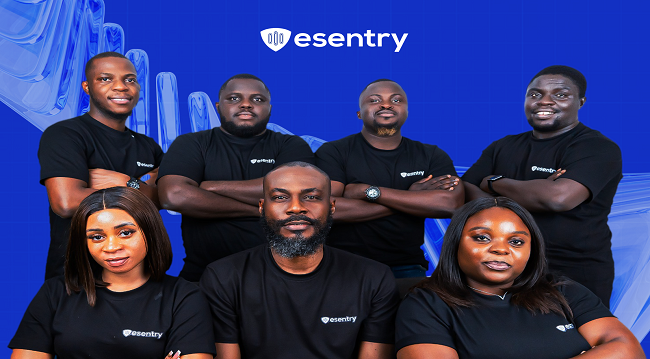E-Business
APBN Bemoans Eleven Months Instability in Nation’s Policy Direction

The Association of Professional Bodies of Nigeria (APBN) has lamented against what it called 11 months of instability in policy direction of the economy as most of the policy makers, since January, 2015 were either on the field campaigning for electorates’ votes or awaiting Presidential appointments.
Speaking to journalists during the Associations’ meeting held at the Nigeria Computer Society (NCS) national secretariat in Lagos, Foluso Fasoto, president/chairman of Council/board, Association of Professional Bodies of Nigeria (APBN), said that Professional Bodies in the country believe it is high time those in Government ditched the attitude of politicking with the management of the country’s economy.
APBN is the umbrella body of government recognized professional Associations in Nigeria set up to speak with one voice on behalf of its Member-bodies while at the same time gives professional advice to Government on matters affecting the professionals and their practices.
Fasoto said that the Association has been following recent events in the country, especially after four months of playing waiting game, the list of ministerial nominees was eventually submitted to the National Assembly which confirmed the appointments of all the nominees. “They were eventually sworn in last month and most of them are about now settling down to business. In essence, the year 2015 witnessed almost eleven (11) months of instability in policy direction of the economy as most of the policy makers, since January, 2015, were either on the field campaigning for electorates’ votes or awaiting Presidential appointments. Nevertheless, we thank God that the economy is now being expected to take shape”.
Treasury Single Account
The Association extolled the Federal Government for summoning courage and directed all the government Ministries, Departments and Agencies (MDAs) to close the multiple accounts already opened with Commercial Banks for their various operations and maintain the designated Treasury Single Account with the Central Bank of Nigeria (CBN).
“This is a welcome development as the resultant effect has shown that the Federal Government is tremendously more liquid than earlier imagined. We however want to quickly caution that while the Government savors the positive result of this directives, the long-run adverse effect of it should equally be given prompt attention so as not to stifle the economy during any emergency,” he said.
Nigerian Economy
Fasoto said it is no longer news that Nigerian economy rely majorly on oil, but despite the oil glut in the recent past, there has not been appreciable breakthrough visible to ordinary Nigerians towards diversifying the economy.
“Our country is endowed with all the resources to be among the first world but for the effective and efficient management of this resources. That is why our governments at all levels cannot ignore the active participation of our members (the professionals) in the governance. Enough of politicking with the management of the country’s economy.
“There is need for setting proper objective for Nigerian economy – where do we want to be in say, 20 years’ time? Do we aspire to remain a developing country “until kingdom come” or we hope to join the league of the first world in say, 15 years’ time? There is need for this objective to be well defined by the Federal Government and widely communicated to all citizens. This will eliminate policy somersault syndrome which avoidably usually afflict us in this country,” the APBN President said.
Employment Generation
On employment generation for the teeming youths, he said, there is foremost need to secure enabling environment for the achievement of such objective as unemployment is a global albatross on most countries of the world, Nigeria not exception.
“However, most countries are strategizing to get out of the problem by creation of employment, using their internal resources. We have human resources experts (such as the Chartered Institute of Personnel Managers of Nigeria, Nigeria Institute of Management (Chartered) Chartered Institute of Administrators, etc.) in our midst who are ready to partner with government to address this problem also with a view to finding lasting solution.
“We therefore call on the government, especially the newly sworn-in Ministers and Governors to make use of these “Nigerian products”.
Against this backdrop, Professor Adesola Aderounmu, president of the Nigeria Computer Society (NCS), reiterated that the place of Information Technology (IT) sector as an agent of change and development cannot be overemphasized.
He emphasized that, worldwide, IT is a major driver of the economy. “Being the acknowledged professional authority in this sector, our aims are socio-economic growth, job creation, poverty reduction and deepened diversification of the economy. Indeed technology holds significant promise as a major revenue earner.
According to Aderounmu, to enhance the deployment of ICT to advance the values of wealth creation and effective leadership in the nation, NCS as a member-body of APBN has discovered the need for an Office of Chief Information Technology Officer of the Federation, approve the pending National Software Policy (NSP) as a blueprint aimed at providing a strategic roadmap to make Nigeria a competitive country in the area of software engineering and digital knowledge development and implementing e-Government strategy as imperatives for corruption-free, equitable, productive and knowledge-based society.
However, the submissions by the Professional Bodies centered on four core issues including Rule of law; Security; Economy and Promotion of professionalism.
E-Business
Kaspersky Discovers New Phishing Campaign Exploiting Google Tasks Notifications to Steal Corporate Credentials

Kaspersky has uncovered a new phishing scheme that abuses legitimate Google Tasks notifications to trick corporate users into revealing corporate login credentials.

By leveraging Google’s trusted @google.com email domain and notification system, attackers bypass traditional email security filters and exploit users’ trust in familiar services.
In this campaign, victims receive an authentic-looking notification from Google Tasks with the subject line “You have a new task.” The message creates the illusion that the recipient’s company has adopted Google’s task management tool, pressuring them to act quickly. The notification often includes elements of urgency, such as a high-priority flag and a tight deadline, to prompt the victim’s immediate response.
Upon clicking the embedded link, users are directed to a fraudulent form disguised as an “employee verification” page, where they are asked to enter their corporate credentials under the pretense of confirming their status. These stolen credentials can then be used for unauthorised access to company systems, data theft, or further attacks.
“Google’s vast ecosystem of services gets exploited by scammers. The scheme with Google Tasks is part of a broader trend observed before and continuing into 2026, where cybercriminals misuse legitimate platforms to distribute scams and phishing.
Notifications originating from legitimate domains naturally evade many spam and phishing filters, while the social engineering aspect – making it seem like an internal company process – lowers the victim’s guard,” comments Roman Dedenok, Anti-Spam Expert at Kaspersky.
E-Business
esentry 2025 Report Shows Healthcare, Financial Services and Telecoms as Staging Grounds for Increased Cyberattacks in Africa

Cyber adversaries targeting African organisations are increasingly shifting away from opportunistic attacks toward deliberate, sector-specific campaigns aimed at the continent’s most critical digital infrastructures, according to the esentry 2025 Annual Report released by esentry, Lagos-based Africa’s leading indigenous Managed Security Service Provider (MSSP).

The report identifies healthcare, financial services, and telecommunications as the primary staging grounds for high-velocity cyberattacks, reflecting a growing focus on sectors that underpin economic stability, public welfare, and digital connectivity across Africa.
The findings are drawn from one of the largest cybersecurity datasets analysed in the region. Over the course of 2025, esentry processed more than 31 billion security events, generating 3.5 million alerts and successfully blocking over 15,000 malicious attempts. This monitoring scale shows that, while traditional financial institutions remain a core target, the threat landscape has expanded to include digital lending platforms, healthcare systems that store sensitive personal data, and telecom operators responsible for national and regional connectivity.
Within the healthcare sector, the report highlights ransomware as the most acute risk, with attackers frequently exploiting exposed Remote Desktop Protocol (RDP) services to compromise patient data and disrupt essential medical operations. In financial services, organisations are facing a surge in credential abuse, insider-related threats, and info-stealer malware designed to enable fraud and unauthorised access. Telecommunications providers are increasingly targeted by highly tailored phishing campaigns and attacks on exposed web services, which aim to harvest credentials and compromise customer data.
Commenting on the findings, Gbolabo Awelewa, Chief Business Officer at esentry, said the nature of cyber threats across Africa has evolved significantly. “The threats we are seeing today are deliberate, informed, and carefully tailored to local enterprises. Attackers are exploiting trusted access and moving quietly within networks, which makes early detection critical. Our coordinated cybersecurity model, spanning Defence, Intelligence, Offence, and Security Engineering, allows us to combine scale, speed, and deep contextual insight to detect and neutralise threats before they escalate,” Awelewa said.
A defining trend identified in the report is the shift from overt system exploitation to the abuse of legitimate access. By leveraging compromised credentials and ‘living-off-the-land’ techniques, attackers can blend into routine enterprise operations and significantly delay detection. This approach has compressed the attack lifecycle, enabling adversaries to move from initial access to full operational impact in fewer than 15 days.
To counter this acceleration, the report emphasises the importance of early detection and automated response. esentry says it currently contains low-complexity incidents in under 90 seconds, using a combination of structured threat hunting and centralised telemetry to anticipate and absorb attacker pressure rather than reacting after damage has occurred.
As African organisations continue to digitise, the esentry 2025 Annual Report positions itself as a critical reference point for understanding the continent’s evolving cyber threat environment. The report concludes that protecting Africa’s digital trust will require a shift away from fragmented security tools toward disciplined, coordinated defence frameworks, what esentry describes as a unified Phalanx formation.
E-Business
AfDB, UNDP Launch $10Bn AI Initiative for Africa

The African Development Bank Group (AfDB) and the United Nations Development Programme (UNDP) have launched an ambitious $10 billion project to support the adoption of Artificial Intelligence (AI) across the continent.

The 10 Billion Initiative intends to accelerate ethical AI adoption and inclusive digital economic growth in Africa.
The initiative follows the Nairobi AI Forum, which took place earlier this month in Kenya and brought together governments, private sector leaders, development partners, and tech innovators to define pathways for impactful AI adoption.
According to the organisations, the strategy is a co-designed collaboration between the Bank Group, UNDP, and commercial partners that aims to raise up to $10 billion by 2035.
The resources will be used to create up to 40 million new jobs across the continent by 2035, through targeted investments that provide the groundwork for AI and accelerate widespread adoption in everything from entrepreneurship and regional data infrastructure to policy frameworks and skill development.
Nicholas Williams, AfDB Group ICT operations division manager, commented: “As a leading multilateral development institution, the bank is leveraging its comparative advantage to ensure Africa is not left behind in the AI era.
“The AI 10 Billion Initiative paves the way for expanded partnerships and sustained investments that will accelerate AI entrepreneurship, strengthen data and infrastructure ecosystems, and support inclusive growth across the continent.”

 Telecom3 days ago
Telecom3 days agoTelecom Giant MTN Injects N1.0 Trillion CAPEX into Network Expansion

 E-Financial3 days ago
E-Financial3 days agoHistory is Watching: Tinubu’s Moment to Rescue Nigeria’s Stolen Future

 News3 days ago
News3 days agoNITDA Equips Federal Character Commission with Data Tools to Drive Public Sector Reform

 E-Business3 days ago
E-Business3 days agoKaspersky Discovers New Phishing Campaign Exploiting Google Tasks Notifications to Steal Corporate Credentials

 Telecom2 days ago
Telecom2 days agoMTN Nigeria Posts Record N1.70 Trillion Pre‑Tax Profit, Declares N20 Dividend for 2025

 General News2 days ago
General News2 days agoMore 14m Farmers to Benefit from AfDB-backed Initiative

 Telecom2 days ago
Telecom2 days agoDimension Data Nigeria Secures ₦20Billion Funding to Strengthen Digital Infrastructure

 Telecom2 days ago
Telecom2 days agoAlerzo Liquidates Delivery Fleet as N4.38bn Moniepoint Loan Row Deepens












